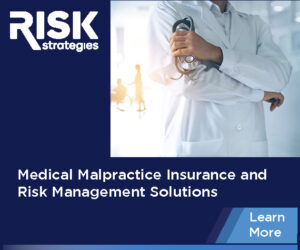By Sarah Steinmann
Tuesday, December 28, 2021
The Centers for Medicare & Medicaid Services released a final rule in November, implementing policy changes to medicare payments in 2022.

CMS is updating its policies and billing practices to better reflect the role non-physician practitioners (NPPs) have in providing care in the facility setting. The changes do not apply to physician offices because the incident-to-billing policies already in place in that setting reflect the significant role NPPs play in patient care. A selection of the policy changes, which take effect Jan. 1, 2022, are summarized below.
Split Evaluation and Management Visits
Split (or shared) evaluation and management (E/M) visits are now defined as an E/M visit in the facility setting (e.g., a hospital or skilled nursing facility) when such visit is performed in part by a physician and in part by an NPP who are members of the same group, such as being employed by the same employer.
Only the physician or NPP who performs the “substantive portion” of the split (or shared) visit may bill for the visit. Beginning in 2023, “substantive portion” will be defined as more than half of the total time spent by the physician and NPP performing the split (or shared) visit.
Medical groups will undoubtedly face administrative challenges in efficiently and effectively recording the time spent by each physician and NPP during a split (or shared) E/M visit. Therefore, CMS has designated 2022 as a transition year, in which a broader definition of substantive portion will be used with the exception of critical care visits, which will use more than half the total time definition.

Sarah Steinmann
The 2022 definition of “substantive portion” is either more than half of the total time of the visit or a complete performance of any of the three key components of an E/M visit (history, physical exam and medical decision-making). This broader definition should give medical groups sufficient time to develop and implement procedures to ensure accurate tracking of physicians’ and NPPs’ time.
The medical record must also identify the individuals who performed the visit and must be signed by the physician or NPP who performed the substantive portion of the visit. Split (or shared) E/M visits can be reported for both new and established patients, and for initial and subsequent visits and prolonged services. A modifier to identify split (or shared) E/M visits must also be added to the claim. The modifier is intended to inform future CMS policy and ensure medical practice compliance with the new regulation.
Physician Assistant (PA) Billing
As required by Section 403 of the Consolidated Appropriations Act, CMS updated the requirements for PA billing and payment. Previously, Medicare could only pay a PA’s employer or contractor for services rendered by the PA. Beginning in January, PAs can bill Medicare directly and reassign payments for professional services.
This change aligns PA billing practices under Medicare with those of other NPPs like nurse practitioners and clinical nurse specialists who can bill Medicare and be paid directly for their services. This new policy may require practices to change their Medicare enrollment process for PAs. For example, PAs may need to complete enrollment forms to reassign payment for their services to their employer.
Practices should be mindful that while a PA can now bill Medicare directly, their services are only covered when furnished in accordance with state law, including any supervision requirements, and within the PA’s scope of practice.
Sarah Steinmann is an associate at CCBLaw, a boutique law firm focused on providing counsel to physicians and other healthcare professionals. She can be reached at 315-477-6232 or ssteinmann@ccblaw.com.





